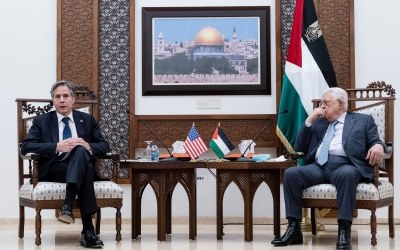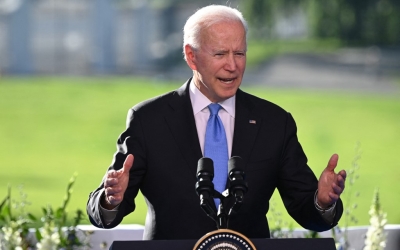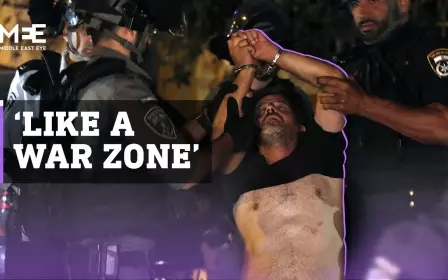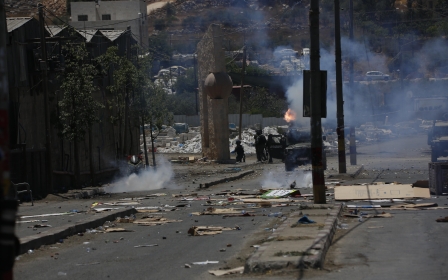US lawmakers seek to strengthen sanctions against Hamas following bitcoin 'spike'
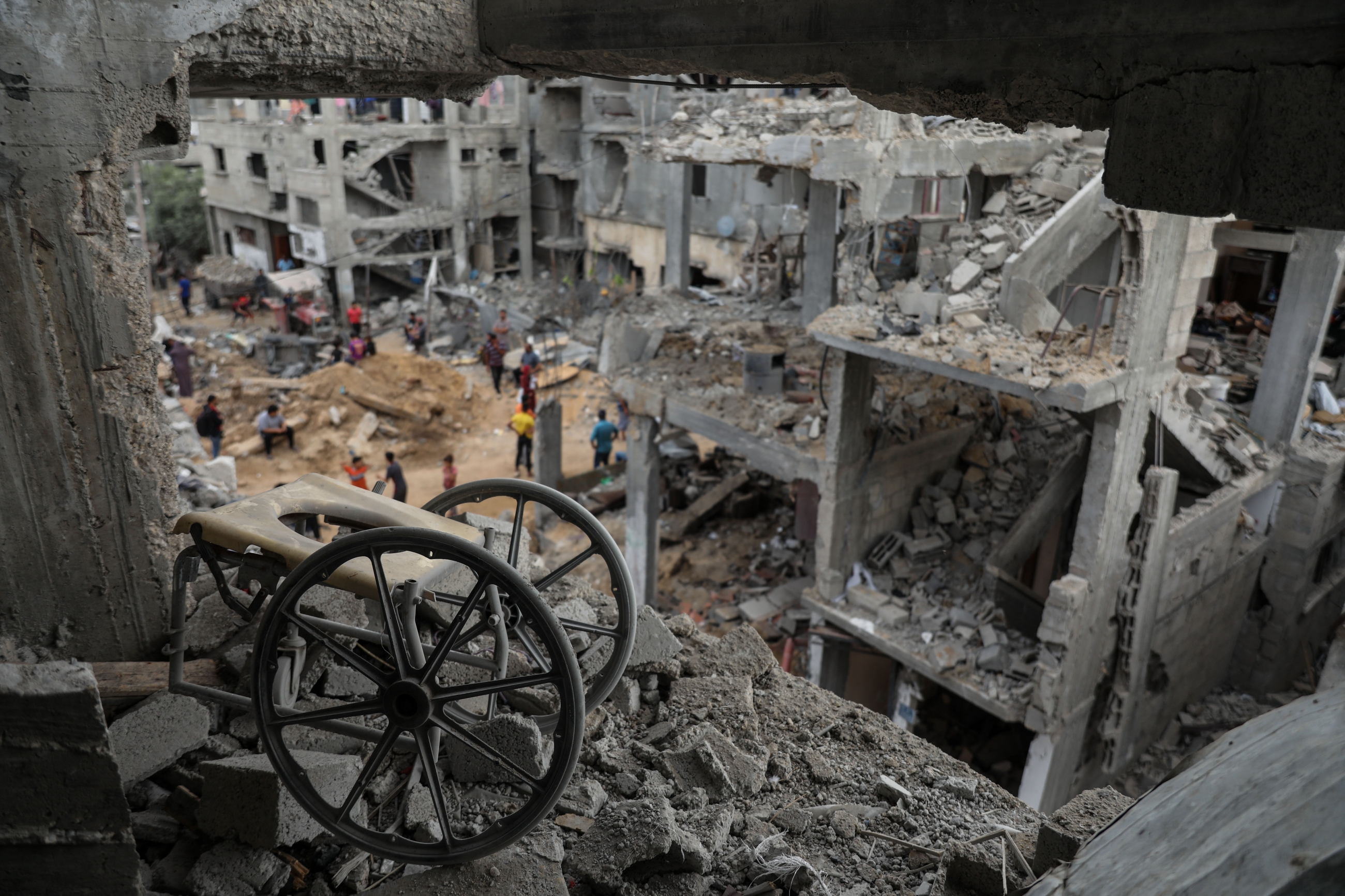
A bipartisan group of US lawmakers have introduced legislation that seeks to strengthen sanctions against Hamas after the Gaza-based movement experienced a spike in foreign cryptocurrency donations.
Representatives Josh Gottheimer, a Democrat, and Brian Mast, a Republican, introduced the legislation on Wednesday, citing a rise in bitcoin donations following Israel's 11-day bombardment of the besieged Gaza Strip last month.
The Representatives said the bill, titled the Hamas International Financing Prevention Act, would target sanctions against individuals, agencies or governments that assist Hamas or other armed groups operating in Gaza, such as Palestinian Islamic Jihad.
As the Hamas movement is already blacklisted by the US as a terrorist group and has been for decades, such sanctions are already in place. However, the new legislation would also require the executive branch to give Congress an annual report identifying "each foreign person or agency or instrumentality of a foreign state" that provides significant financial or material support to Hamas or affiliate groups. It then requires the president to impose two or more sets of sanctions listed within the bill against any identified offenders.
"This bill will strengthen sanctions to weaken these terrorist groups that threaten our ally Israel, undermine peace, and further destabilize the Middle East," Gottheimer said in a statement on Wednesday.
Earlier this month, Gottheimer met with members of The American Israel Public Affairs Committee (AIPAC) from his home state of New Jersey to talk about his plans to introduce the legislation and other pro-Israel measures.
Representative Mast, a US Army veteran who once volunteered with the Israeli army, stressed that "the United States must not tolerate anybody who provides support to" the Hamas movement.
The bill now has more than 50 bipartisan co-sponsors.
A 'spike' in Hamas bitcoin?
The legislation comes after the Wall Street Journal published an interview earlier this month with a senior Hamas official who said the group had seen a "spike" in bitcoin donations after Israel's 11-day bombardment.
"Recent reporting revealed a surge in cryptocurrency donations to Hamas since the start of the conflict, circumventing international sanctions," the lawmaker's statement on the bill said, citing the WSJ interview.
At the time, the Hamas official did not provide information on the amount of donations the movement had received, but said "its proportion of overall revenue was rising".
During its air campaign on the Gaza Strip between 10 and 21 May, Israel killed at least 248 Palestinians, including 66 children, and injured nearly 2,000 others.
Israeli air strikes brought down nine high-rise buildings, mostly residential homes, including al-Jalaa tower, part of which was used to house the offices of numerous news agencies, including the Associated Press, Al-Jazeera and Middle East Eye.
Around 91,000 Palestinians were displaced, with 14,000 housing units damaged, according to the United Nations.
Israel has defended its decision to bomb civilian homes by alleging that the Hamas movement purposefully operates in residential buildings.
Hamas rocket fire killed 12 people in Israel and caused minimal damage to residential buildings.
As international bodies, including the US government, begin to coordinate reconstruction efforts in Gaza, the lawmakers introducing Wednesday's sanctions bill noted that stipulations to allow the delivery of humanitarian assistance, including food, medicine and medical devices were made in the bill.
Secretary of State Antony Blinken has on multiple occasions underlined US efforts to bring relief to Palestinians in Gaza without empowering the Hamas movement, seeking to use the West Bank's Palestinian Authority as well as the UN to coordinate reconstruction.
"If we do this right, reconstruction and relief for the people of Gaza, far from empowering Hamas, I think [it] has the potential to undermine it," Blinken said after meeting PA President Mahmoud Abbas late last month.
The US also plans to provide Israel with $1bn in funds to replenish and reinforce its "Iron Dome" missile defence system, which was able to knock most of Hamas rocket fire out of the sky.
Middle East Eye delivers independent and unrivalled coverage and analysis of the Middle East, North Africa and beyond. To learn more about republishing this content and the associated fees, please fill out this form. More about MEE can be found here.


